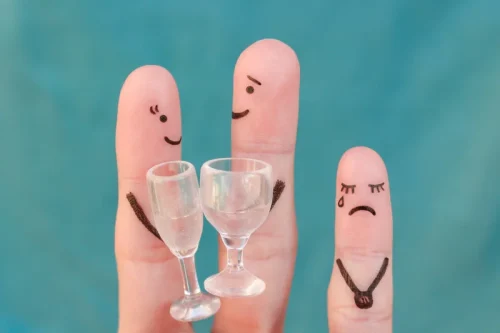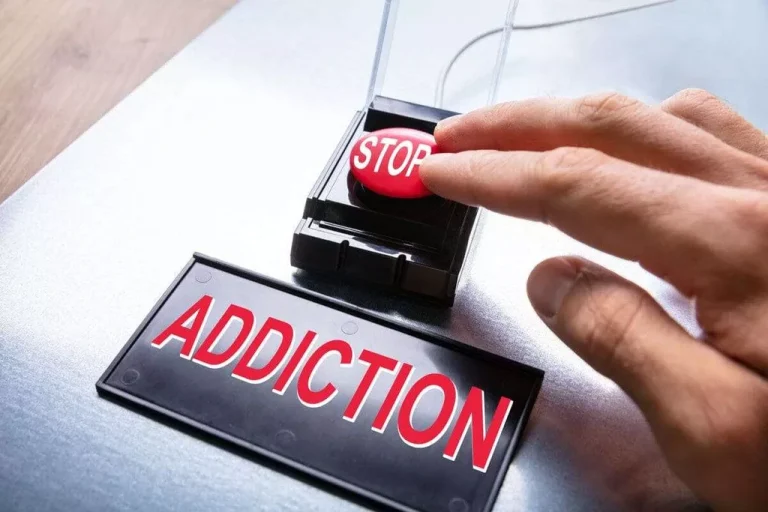
Detox can occur in a hospital setting or as the first part of inpatient or outpatient rehabilitation. Some studies find that this structure, along with a start date for sobriety and milestones, is important to some people in recovery. At the end of four to six months of treatment with the Sinclair Method, 80% of people who had been overusing alcohol were drinking moderately or abstaining entirely. The MM approach has been found most successful for those who have a problem with drinking but do not meet the criteria and have not been diagnosed with moderate or severe alcohol use disorder.

Growth stage

This cycle is accompanied by feelings of shame and guilt, leading them to drink more and increasing the severity of their alcoholism. Not everyone comes from an encouraging and supportive home environment. If your family and or friends aren’t motivating you to seek help for your substance misuse, make an appointment with a medical or addiction treatment professional. These individuals can direct you toward the resources you need for recovery, including the needed services and diagnosis of substance use and any co-occurring mental health disorders. Strictly speaking, sobriety is the state of being sober—not being under the influence of alcohol or drugs. However, the word is often used in different ways in different contexts.
- Thinking about getting sober can come with many questions about your future outside of counseling and medical support.
- You can discuss trigger situations with your therapist and rehearse strategies to deal with them.
- It can be compared to someone having a flare-up of their diabetes or hypertension symptoms.
- At United Recovery Project, our holistic approach to addiction treatment centers around addressing and healing theunderlying issues at the root of addiction.
- In many cases, alcohol cravings or stress can tempt you into drinking again, even when staying sober is the better option.
Medication for Alcohol Use Disorder: An Underutilized Treatment Option
Understanding these genetic factors can help individuals make informed decisions to stop drinking alcohol. Dealing with intense emotions during recovery can be incredibly overwhelming and difficult to manage. These powerful emotional states can put an individual’s recovery at risk, leading them to turn to alcohol as a coping mechanism.
Can Recovering Alcoholics Drink Socially?
The first step to getting sober is recognizing and admitting that you have a problem with drug or alcohol misuse. It’s difficult to admit that you have lost control over your substance use. This can include toxic relationships in which you feel unheard, misunderstood, unsupported, demeaned, unsafe, and/or attacked. Triggers for using drugs and alcohol typically are people, places, and things that remind you of your addictive behavior or encourage the use of substances you’re avoiding. One of the best things about moderating your alcohol use is filling newfound time with fun hobbies and activities. By doing so, you may even identify triggers that cause you to drink—for example, certain social situations, stress from work, or even boredom.

As described by the National Institute on Drug Abuse, there is not a one-size-fits-all treatment program for addiction. Therefore, it’s important to ask questions to ensure that the program you want meets all of your needs. There are multiple drinking again after sobriety factors to consider, including cost, reviews, licensing, accreditations, amenities, and treatments. With help from a healthcare professional, you can start looking for a treatment program that meets all of your unique needs.
Alcohol Relapse: What Happens When An Alcoholic Starts Drinking Again?
- For a recovering alcoholic, having just one drink can be the catalyst for a full-blown relapse.
- As stated above, support can help the individual stick to treatment through the duration of the program.
- It’s often thought that those who struggle with alcoholism can never return to a normal pattern of drinking.
- So far, there’s no consensus on the medical definition of recovery in alcohol treatment literature.
- If you choose to drink, do so mindfully—limit how many drinks you have, avoid getting drunk, and talk to a healthcare provider if you suspect you have an unhealthy relationship with alcohol.
- Casual drinking is impossible for someone who has an alcohol use disorder (AUD) because alcoholism reactivates cravings and makes it difficult to avoid old drinking habits.
This means that the brain and body have become so accustomed to having the substance present that without it, they can’t function properly. The brain and body need time to return to functioning without the substance. Medical support can help keep you safe and as comfortable as possible during the detox process. When reaching out to family and friends for support, it’s important to choose wisely. In fact, your journey to sobriety will likely involve strengthening some relationships and purging others. You may find yourself leaning on your trusted support system a lot and breaking ties with those who do not aid you in your recovery.
“Moderate consumption” is limited to one to two alcoholic drinks per day for healthy men and one alcoholic drink per day for healthy women. One drink is equivalent to 12 ounces of beer, 5 ounces of wine, or 1.5 ounces of distilled spirits. By Buddy TBuddy T is a writer and founding member of the Online Al-Anon Outreach Committee with decades of experience writing about alcoholism. Because he is a member of a support group that stresses the importance of anonymity at the public level, he does not use his photograph or his real name on this website.
What Medications Are Used To Treat Alcohol Use Disorder?
This reduces cravings for alcohol when used consistently (i.e., each and every time the person drinks). Teachers or other parents may notice that a certain child is always picked up late or they never have a lunch packed for them. Trends like this indicate that the parent might be in trouble and that it may be necessary to step in and ensure everything is okay. https://ecosoberhouse.com/ Months and sometimes years of counseling, self-reflection and sustained sobriety can become a significant point of pride for those who received the support they needed to feel themselves again. While many striving for improved health and wellness may wonder if a recovered alcoholic can drink again, the best road forward is to avoid drinking in the future.

Building a Relapse Prevention Plan
If you’re involved in a 12-step program, you likely already know the importance of milestones. In these programs, it’s customary to receive plastic chips as you progress to the one-year mark, at which time you receive a bronze coin. Most people who make their way into recovery have left a lot of pain and suffering in their wake. Feeling guilty or ashamed of past behavior or actions during active addiction is natural and healthy. A mental health professional can help you cope with some of the challenges you’ll face on your path to sobriety.
Being aware of these factors is crucial when considering drinking alcohol again after a period of sobriety. By understanding the complex interplay between genetics and environmental factors, individuals can better navigate the challenges of long-term recovery and make decisions that support their well-being. When a person with an AUD resumes drinking, it is usually the alcohol that gains all of the power. It sounds impossible for an inanimate object to have power over someone’s life, but that is how the disease of alcoholism works; the body begins to physically and psychologically crave the drug. When someone with an AUD starts drinking, they lose the ability to fight off addiction and are driven by maintaining a buzz or ensuring they will be able to drink. These individuals are sucked back into the vicious cycle of losing control of their actions and desires.


Leave a Reply